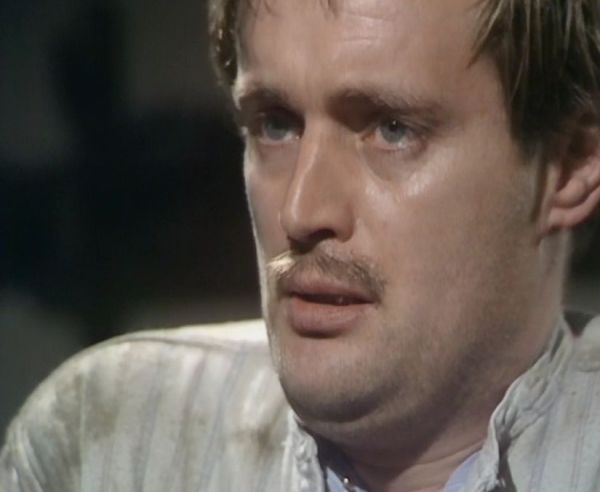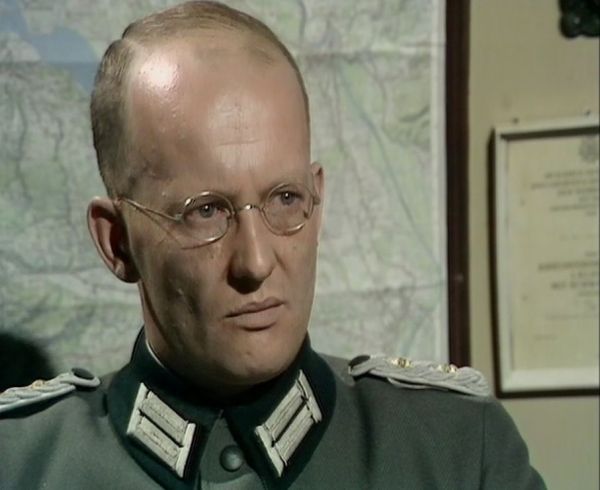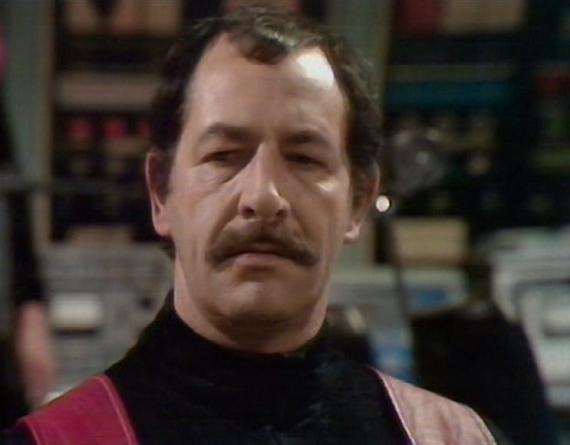The third of three pre-Colditz episodes, this one centres around the travails of Lt. Dick Player (Christopher Neame). Having already followed an army officer (Pat) and a member of the air force (Simon) it makes sense not to leave the navy out, which is where Lt Player comes in.
Washed ashore in France, Player is taken to a nearby hospital. The French doctor who deals with him is either on his side or rather incompetent (he tells a keen as mustard German officer that Player won’t be in a fit state to be interviewed for at least two days – but as soon as the pair leave, Player opens his eyes and begins to plan his escape).
As Player moves through the hospital, there’s a vague element of farce to his frantic attempts to pinch some clothes (rather reminiscent of Jon Pertwee’s debut Doctor Who story). For example, he steals some trousers (much to the indignant chagrin of their owner) and, when looking for shoes, initially comes across a nice ladies pair.
The episode boasts some well played cameo performances. The first comes from Alistair Meldrum as a chatty German soldier who runs into the absconding Player. Next up is David Garfield as Diels (he’s the sort of actor – rather like Michael Sheard – who portrays cold German officers with casual ease).
Recaptured and forced to admit his identity, Player is interrogated by two Gestapo officers (played by Nigel Stock and Terrence Hardiman). Their scenes together are a highlight of the episode – Stock’s character (the senior of the two) appears to be full of bluster whilst the other (Hardiman) is seemingly more friendly. But you must always be wary of a friendly Gestapo officer ….
Hardiman, of course, would later appear in another Glaister series (Secret Army) playing a not totally dissimilar character. Neame would also be a Secret Army regular for a while (his character was written out at the end of series one).
Player is then released into the care of an old friend, Paul Von Eissinger (John Quentin). That Player has German friends (and indeed, can speak the language like a native) might explain why he’s not immediately slung into a prison camp.
Von Eissinger, like his friend, enjoys a privileged background and professes to be no friend of the Nazis. He paints a compelling picture – Hitler removed from power and an alliance forged between the new Germany and Britain (together they could rule the world). Quentin’s clipped, mannered performance is a slightly odd one, but his dueling dialogue scenes with Neame are still absorbing.
The viewer knows that Player’s brief stint of luxurious living with Von Eissinger will only be transitory, as the price on offer for his freedom is just too great for him to pay. The episode ends with his arrival at Colditz, where he meets some familiar faces (Pat, Simon) and some others that the viewer will get to know during the next few weeks.
These first three episodes have been much more than just padding, but it’s hard to deny that the pulse quickens just a little when we pass through the gates of Oflag IV-C for the first time …






